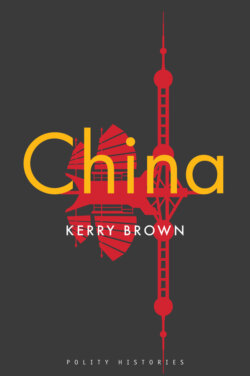Читать книгу China - Kerry Brown - Страница 13
China’s Struggle to Catch Up
ОглавлениеChina’s engagement with modernity was an arduous one. It has spawned many myths, some of which are unresolved. In recent decades, there has been a lively debate about the issue of why industrialization and economic modernization took the very different trajectories they did in Europe and China. In The Great Divergence, historian Kenneth Pomeranz joins those who contest the popular idea that Europe had something unique in terms of its culture and philosophical outlook which meant it was predisposed to innovate and industrialize. ‘There is little to suggest,’ he writes, ‘that western Europe’s economy had decisive advantages before [the 1800s], either in its capital stock or economic institutions, that made industrialization highly probable there and unlikely elsewhere.’7 Rather than attributing Europe’s ultimate success in pulling ahead so dramatically in the nineteenth century to holistic explanations that range from the cultural – Max Weber’s Protestant work ethic, for instance – to the more overtly economic or political – like the rise of consumption and the prevalence of individualism and its associated governance models – Pomeranz looks at a host of interrelated, but different, more localized causes. Some of these derive from the various forms of resistance to change and transformation within Qing China. Some refer to the strengths of Europe in terms of political and social flexibility. What is indisputable is that in the nineteenth century the Qing was in seemingly irrevocable decline. In gross terms, China ranked as the world’s largest single economy up to 1820. But this claim is rendered almost meaningless by the deep structural differences between the Qing’s economy and that of, for instance, Great Britain. Nineteenth-century China did not have the same levels of urbanization, infrastructure building, and capital formation that powers like the United States, Great Britain, and Germany did. While its lack of naval assets made it incapable of reaching and impacting on Europe, Europe was more than capable of involving itself directly in China. By 1900, China was weak, exposed, and vulnerable.
These issues are illustrated by one of the key moments of encounter between the Qing court and an industrialized and modernizing Great Britain approaching its century of radical transformation. The Macartney Mission during the era of George III (r. 1760–1820) is a key moment in the histories of both China and the West. The outcome of this mission was a rejection by the ageing Qianlong emperor (r. 1735–96) of the manufactures and goods offered by the visiting dignitaries. Throughout the whole mission there were many moments of cultural miscommunication. Lord George Macartney’s refusal to show his status as a visitor from a vassal state by kowtowing to the emperor and the tortuous negotiations to achieve a way around was one of the most striking. But Macartney’s journal recording the visit presents many more examples. On 13 October 1793, he gave vent to his general frustration:
How are we to reconcile the contradictions that appear in the conduct of the Chinese government towards us? They receive us with the highest distinction, show us every external mark of favour and regard. … Yet, in less than a couple of months, they plainly discover that they wish us to be done, refuse our requests without reserve or complaisance, precipitate our departure, and dismiss us dissatisfied; yet no sooner have we taken leave of them than we find ourselves treated with more studied attentions, more marked distinction and less constraint than before. I must endeavour to unravel this mystery if I can.8
Macartney’s expression of bewilderment has been echoed ever since. In the twenty-first century, the creation of confusion with interlocutors has been one of the consistent characteristics of Chinese negotiating behaviour.
Macartney’s mission had limited success. Half a century later, the vast Manchu-run Qing empire was to pit itself against less benign aspects of the West. The first Opium War of 1839 figures in Chinese historiography to this day as inaugurating a period of China as the victim – one it is only now emerging from fully. This involved the British using advanced gunboats to force the Qing to accept the import of opium drugs they had banned because of widespread addiction within the country. Despite this attack, it was domestic challenges that proved more tumultuous in the short term, raising the question of who in the end was most responsible for the country’s woeful state: itself or outsiders. The Taiping Rebellion from 1850 to 1864 was the most extreme. Approximately 20 million died from the upheaval caused by the revolt. While it did not finish off the Qing, it contributed to the regime’s eventual collapse half a century later. The Taiping remains a bewildering event. Inspired and instigated by Hong Xiuquan (1814–64), a native of Guangdong, it mixed traditional peasant rebellion with a semi-mystical, messianic-style movement. Hong claimed he was the brother of Jesus Christ, setting up a Heavenly Kingdom based in Nanjing. From idealistic beginnings, the rebellion evolved into a civil war. Its destructiveness was compounded by the Second Opium War from 1856 to 1860, one that resulted in the creation of more treaty ports and foreign concessions open to Western powers.
